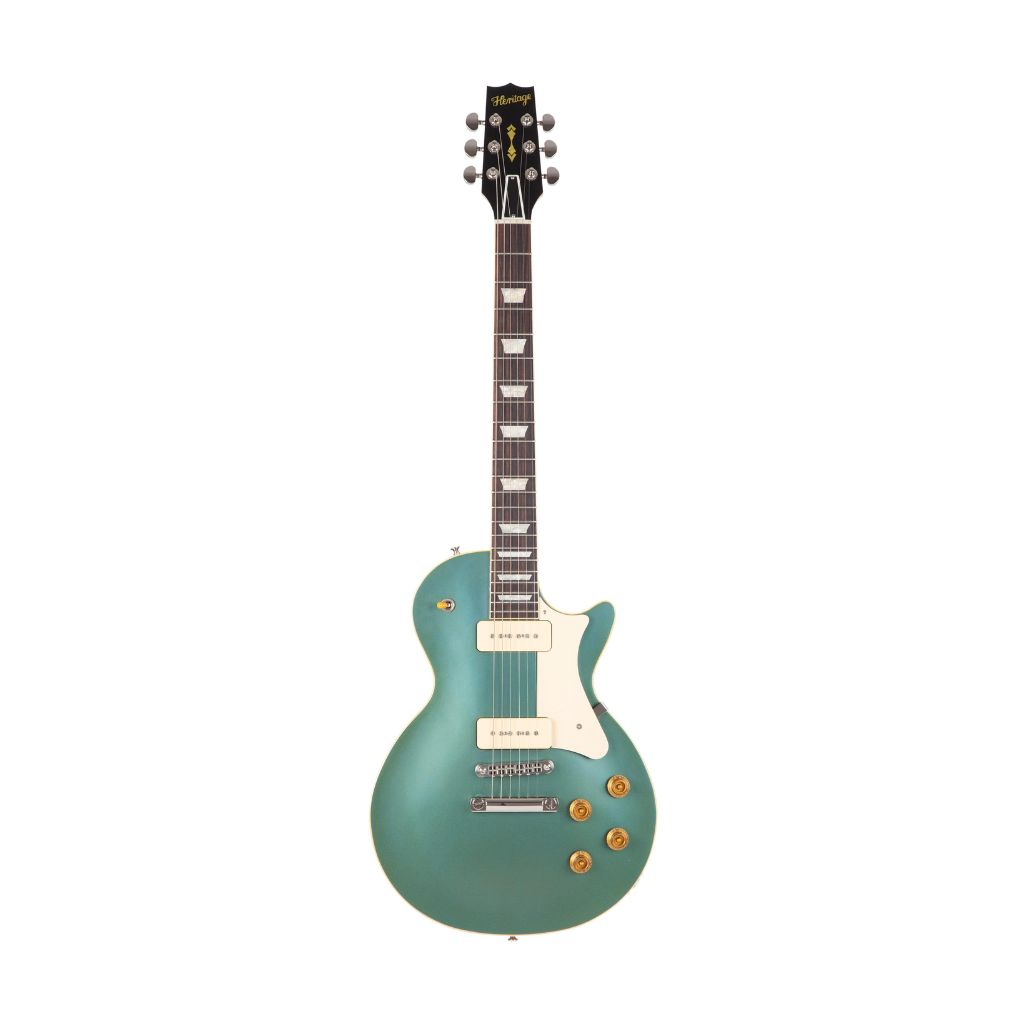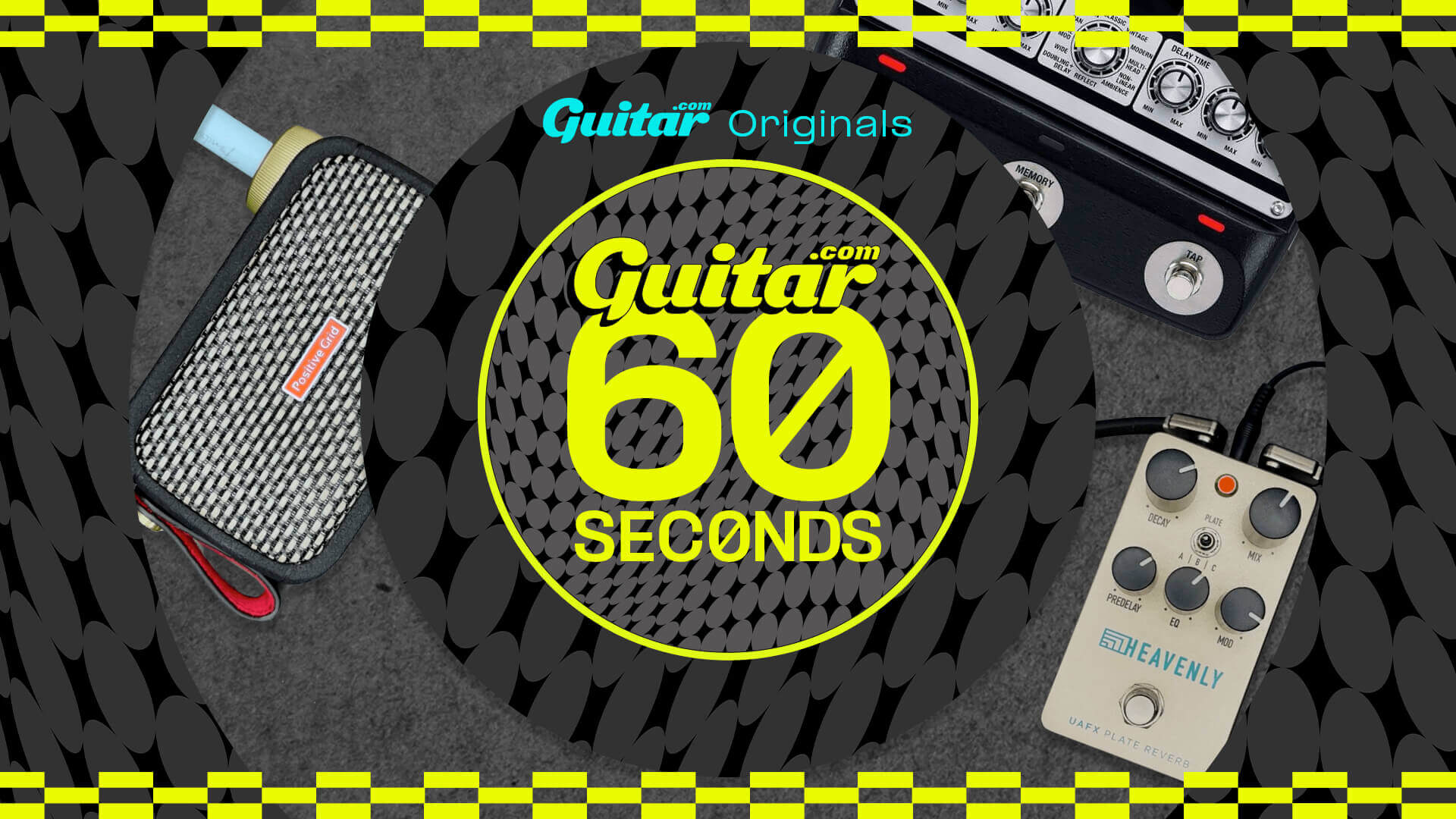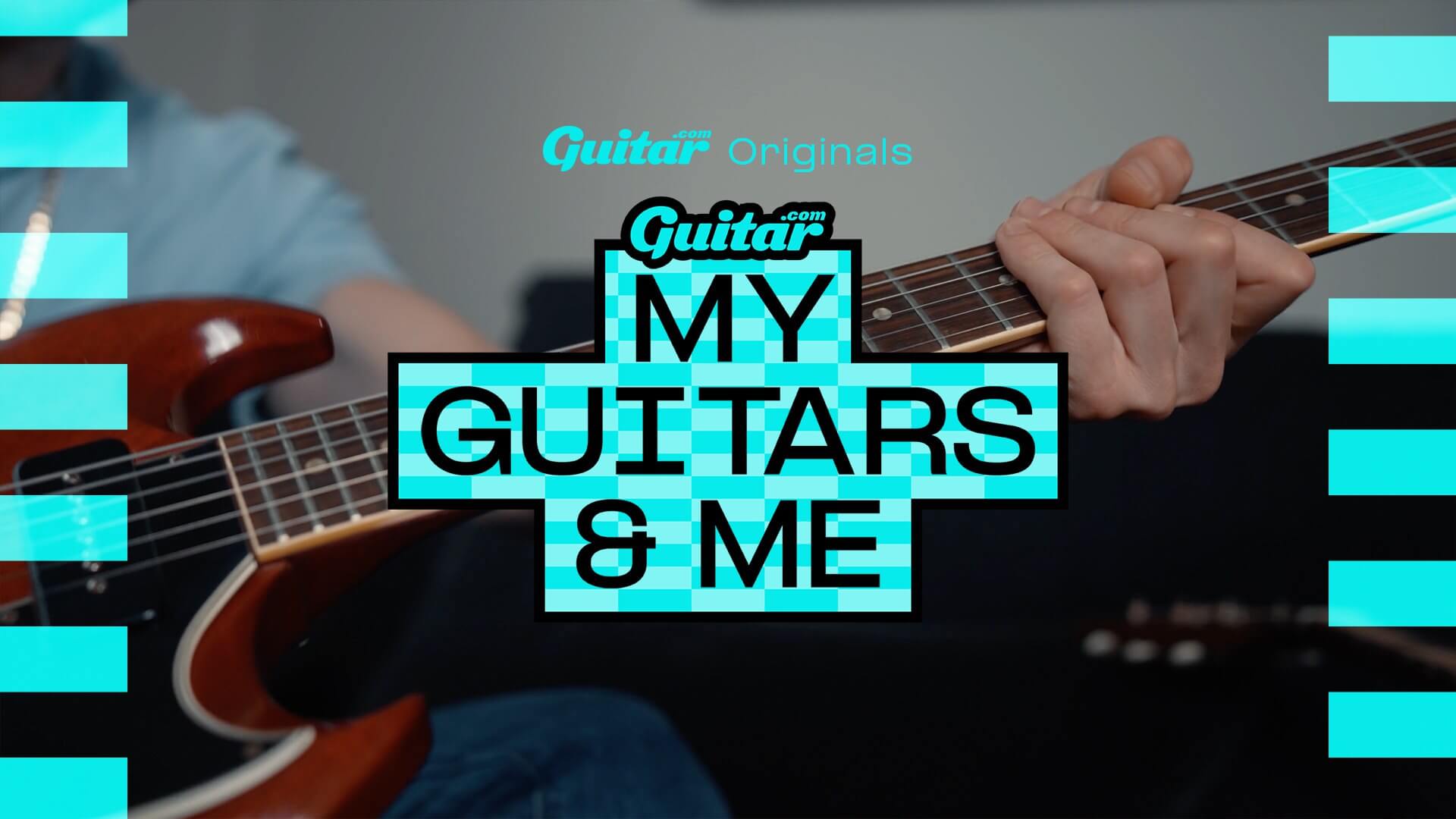Heritage H-150 P90 & Custom Core H-150 P90 review – soapbar single-cuts for those who want something a little different
This pair of familiar yet distinct solid-bodies adds P-90 charm to the well-received Heritage H-150 recipe – are we ready to ditch the humbuckers and dive in?
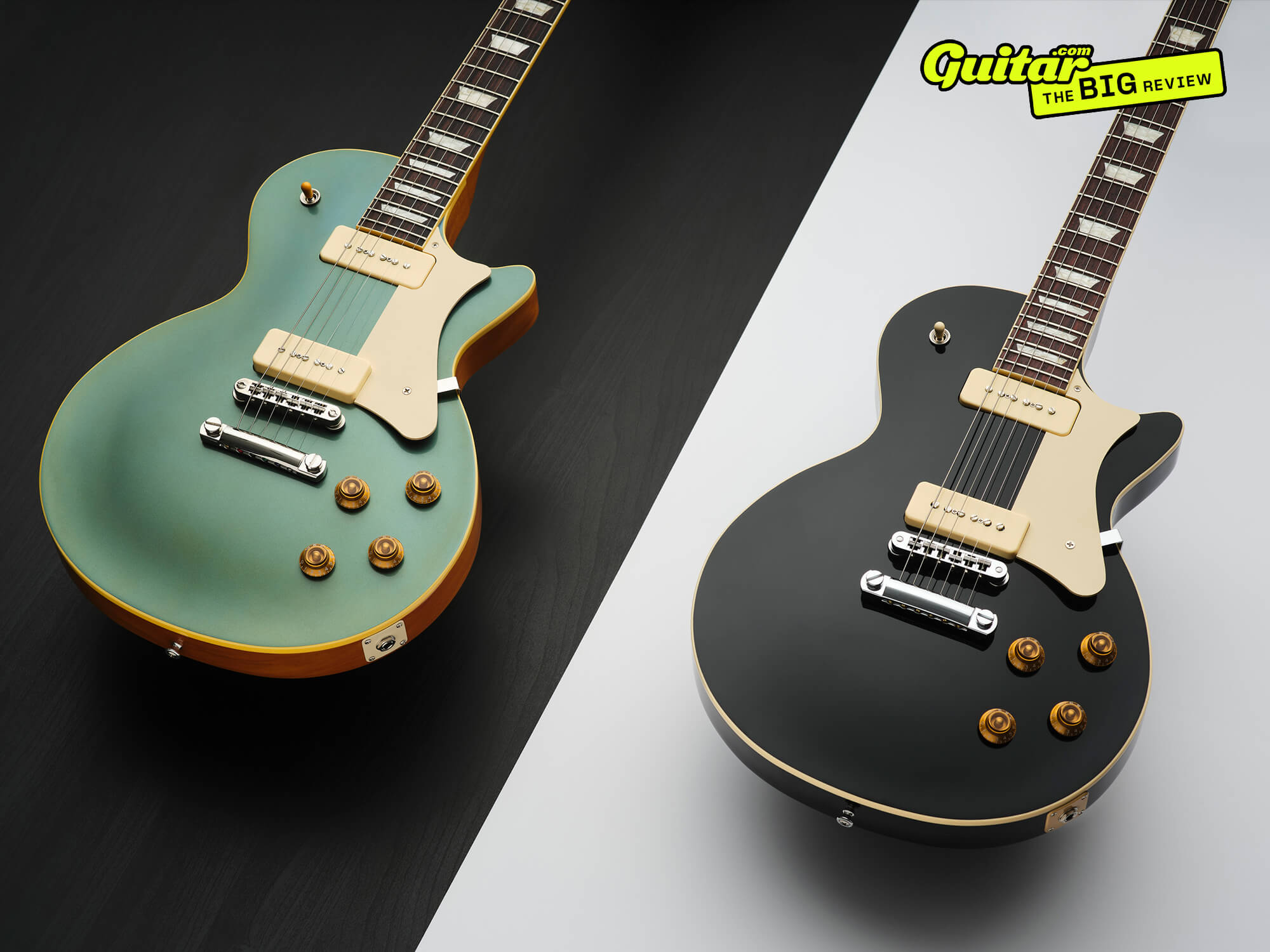
Heritage H-150 P90 Standard (black) and Custom Core (blue). Image: Adam Gasson
$3,799 & $2,599, heritageguitars.com
Why would anyone buy a Heritage electric guitar when a handmade “authentic” Gibson counterpart is readily available from just about any guitar shop in the world? Well, there has to be a reason why this boutique brand – made up of ex-Gibson employees building guitars at the original Kalamazoo address of 225 Parsons Street – has been going strong since 1985, right
These thoughts, and other similar meanderings, make their way through my mind as I decant a pair of inescapably familiar guitars from their Heritage-branded deluxe leather cases. On the left is a sultry tuxedo black number from the Standard range, and on the right a Pelham Blue Heritage Custom Shop beauty. They’re both loaded with P-90s and they both feature genuine mahogany bodies and necks with carved maple caps – it’s a familiar recipe and has been since 1952. So how are these different?
Well, for starters the main differences are subtle cosmetic tweaks; such as the elegant recurve of the pickguard, the point of the cutaway horn, and then there’s the headstock. While it’s necessarily distinct, it’s a shame the tapered head is so similar to budget brands like Aria – these are far from entry-level instruments after all.
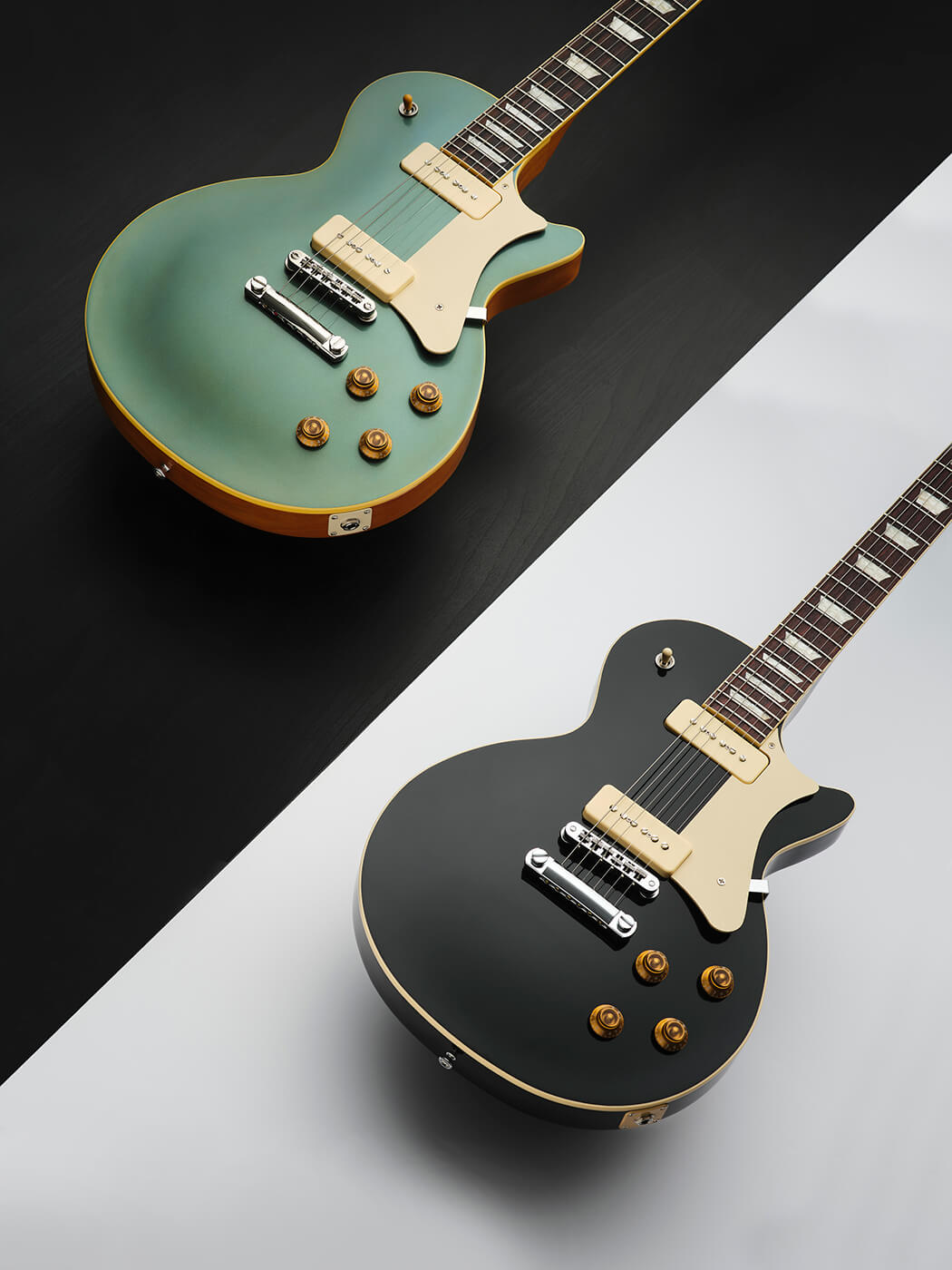
What is reassuring, however, is that when you pick it up you wouldn’t know the difference – from a player’s point of view it looks ‘right’, but it’s more than just the looks of course. The weight of these guitars will be familiar to anyone who has hefted a Les Paul in the flames of battle – there is a sense of concentrated mass in these small bodies.
Fit and finish of both guitars is pretty good. Expectations need to be adjusted here; you won’t find the CNC perfection of a Wood Library PRS here. There are tool marks in the fret binding, and the finish is a little rough in places but surely these are machines for rocking the hell out at a senior level, not just polishing and admiring.
Both guitars have it where it counts as far as playability is concerned. They have beefy, immediate-feeling necks and set-ups so slinky the strings are practically behind the frets. The black model, which comes from Heritage’s Standard line, has a fittingly Standard C carve while the Custom Core Pelham Blue model has a deeper 50s C. They both encourage the player to make the most of the 24 3/4” scale length and get expressive with vibrato and bends.
Under the hood we have some further differences between the two guitars. The standard model is loaded with Seymour Duncan Vintage P-90s and Custom CTS potentiometers with Vishay .022uF capacitors. Its custom sister, however, features a brace of Heritage’s own 225 Classic P-90s and Custom CTS potentiometers along with Orange Drop .022uF capacitors. Yum.
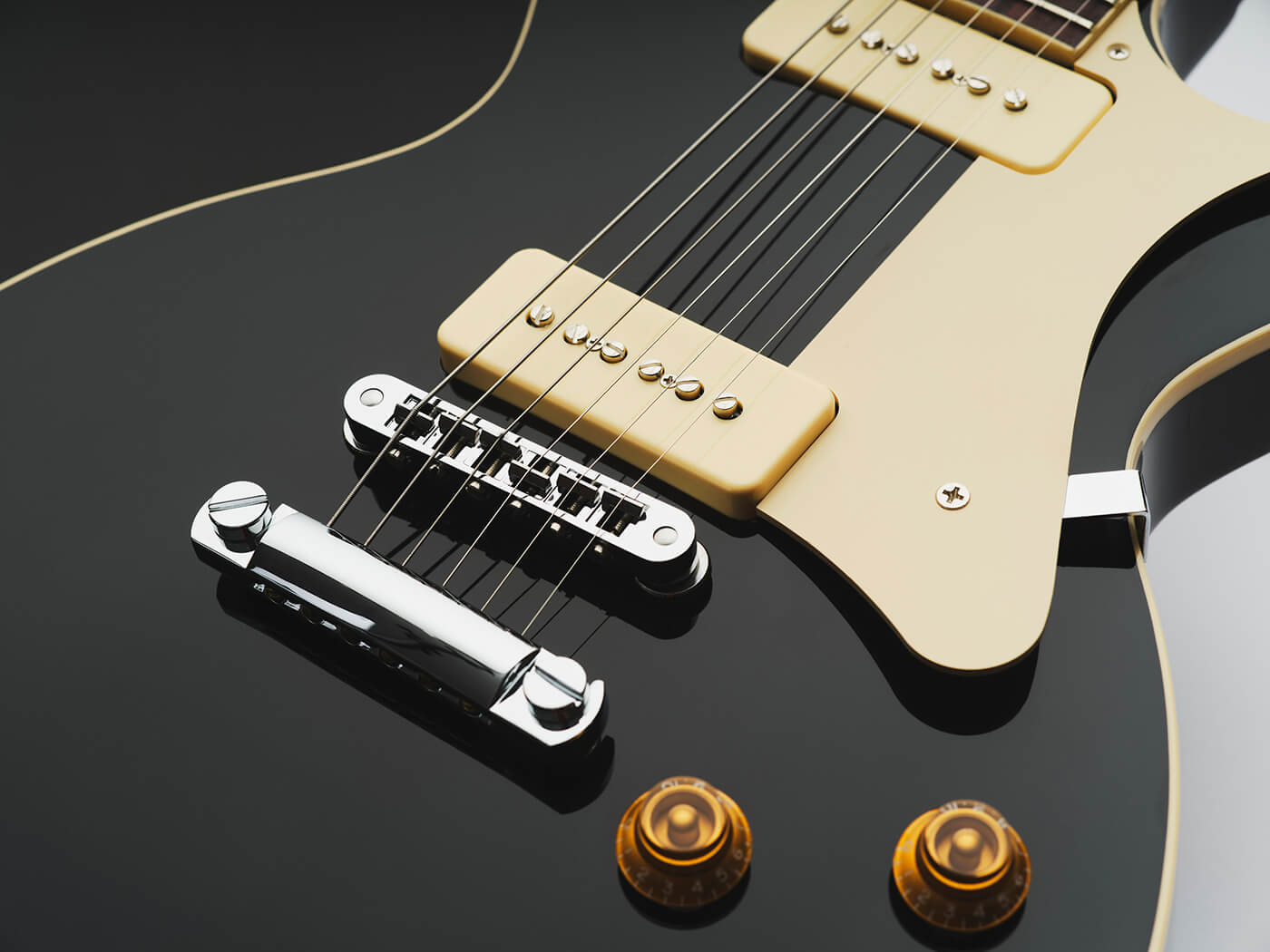
In Use
With a gently sizzling valve amp and some discrete mid-low gain overdrive pedals in place I begin my explorations in search of soapbar satisfaction. The black Standard is first; with a clean sound and the neck pickup engaged I give it some introductory licks to test the waters, and yeah, it sounds like a Les Paul. A good one too. Strangely though, I can’t escape the sense of familiarity. This feels like a fine 1990s example of Gibson’s work – one of the much-vaunted ‘good ones’ that made it out of the factory before things started going south in terms of consistency and general direction in the 2000s.
The neck pickup is big and fruity, and there is the usual perceived drop in volume on the bridge pickup – it’s not actually that much quieter but it is a lot more focused and wiry. Conversely, when I add a Vemuram Jan Ray the neck gets almost a little too girthsome, while the bridge takes off like a rocket – and snarling as it goes.
P-90 pickups have been making a comeback in recent years, whether it’s under the fingers of players like Billie Joe Armstrong, or when pressed into service by blues rock wildman Jared James Nichols. They are rightly prized for their simultaneously fat and detailed single-coil sound. This set of Seymour Duncan Classic P-90s do a good job of conveying the cream and the spite that can be accessed in this instrument’s personality. Now it’s time to pick up the shiny blue beauty.
Heritage says that its Custom Core series guitars are made from lightweight genuine mahogany but there is little appreciable difference in the feel of this guitar. It’s still a hefty beast that rings loud when strummed unplugged.
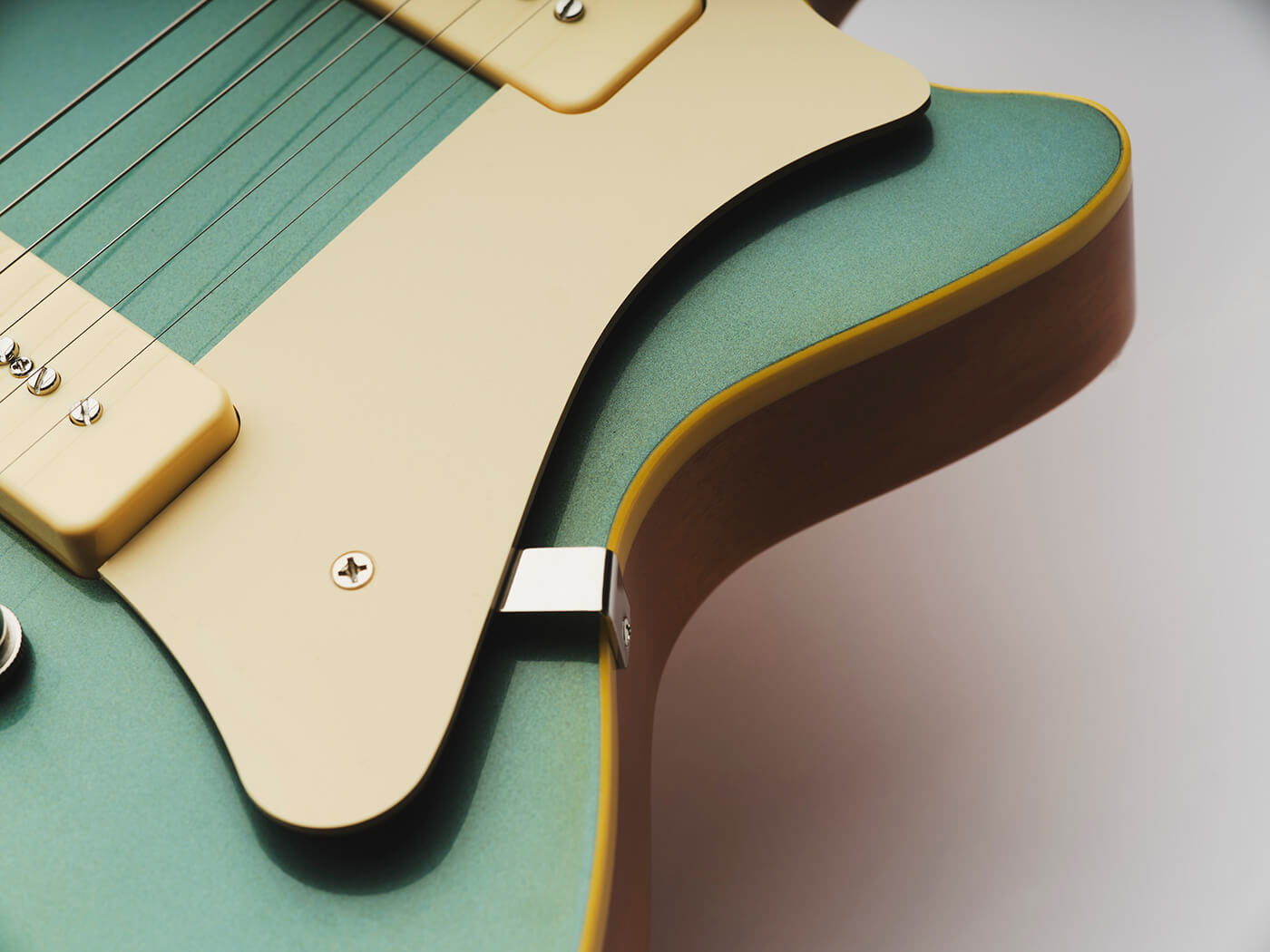
Plugging in on the same settings as before is a revelation – there is an extra 3D quality to the sonic spectrum of this guitar that was lacking in its sibling. It whispers silken nothings in the trebles and purrs in the bass – making it an ideal partner for a fingerstyle approach. These Heritage-made P-90s ensure that every nuance of the player’s attack is present and articulated in a very musical way.
Stamping lovingly once again on the Jan Ray gives an immediate and abiding taste of just why P-90s are the first choice for many players. There is a wildness at play, little howls and shrieks that dance around the picking hand fingertips when you apply extra gain. Close intervals bring out cocked-wah, even filter textures which can be readily exacerbated by rolling off the tone control for an evocative, almost saxophone-like honk that turns to velvet at the slightest change in attack angle.
We get even gainier with a Crowther Hot Cake, which encourages each note to spiral off into some of the most pleasing harmonic feedback I have heard for some time, while underpinning power chords and double stops with a visceral punch. Do you remember the first time you were properly barked at by a Les Paul? It sticks with you and I have a feeling that the immediacy and power of this guitar will stay with me for a while after I have sent it home. It is very good indeed.
Verdict
Neither of these guitars is a cheap option, but they are nuanced and exciting, familiar and different. Ideal for the player who wants more than just “good enough” perhaps.
- Heritage Standard H-150 P90 8/10
- Heritage Custom Core H-150 P90 9/10
Editor’s note: Heritage and NME Networks are both part of Caldecott Music Group
Like these? Try these
- Gibson Les Paul Standard 50s P-90 $3,213/ £2,649
- Nik Huber Krautster II £3,499
- Patrick James Eggle Macon Carved Top £4,540

